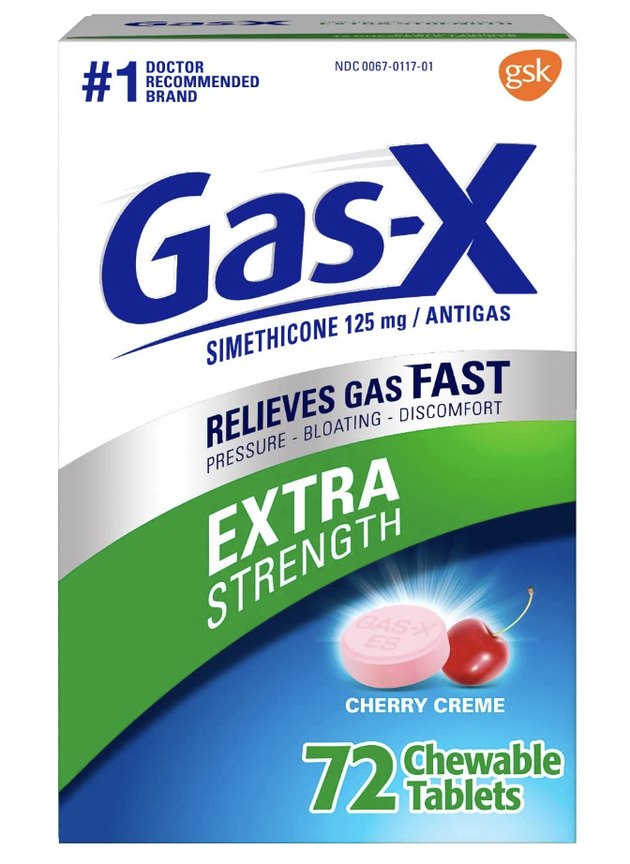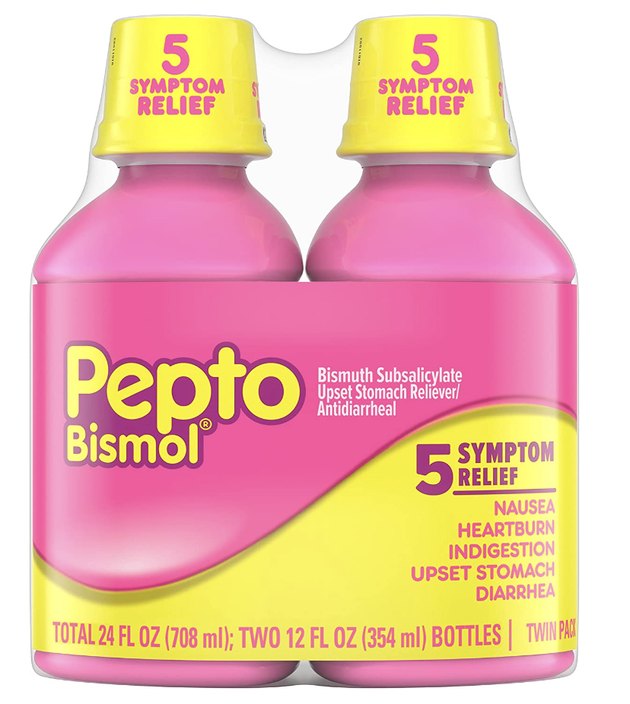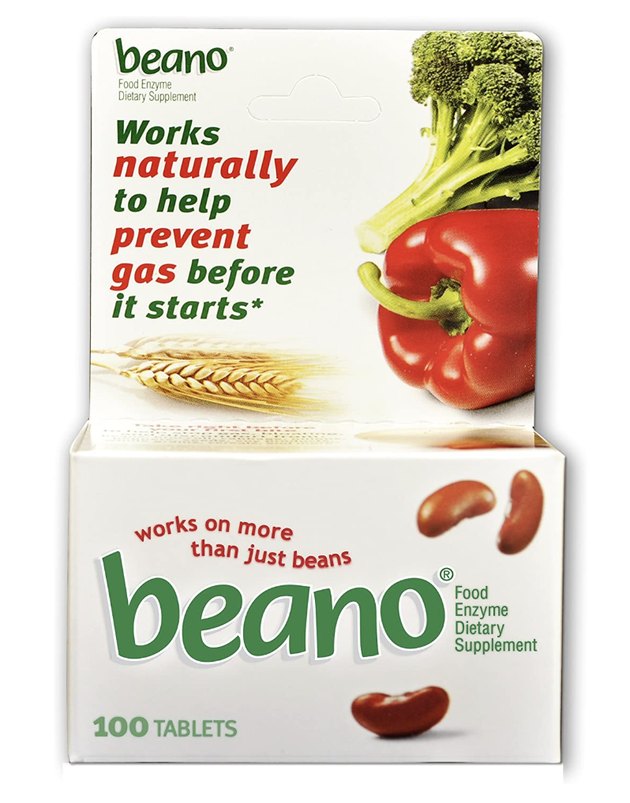
Passing gas is a normal and natural bodily function. And while some farts don't have any smell at all, others release an impressive — and, ahem, powerful — odor.
For example: Ever let one rip and wondered why your farts smell like rotten eggs? Here's where that particular stench comes from, plus some tips for clearing it up.
Video of the Day
Video of the Day
Why Farts Smell Sometimes
While every human body is different, we all generally release gas anywhere from five to 25 times a day, gastroenterologist Brian Wolfman, MD, says.
Seem like a lot? Consider what causes farts: the air you're taking in. As Dr. Wolfman explains, we swallow air when we talk, chew and drink carbonated beverages. Because the air has to go somewhere, it comes out one end or the other: via a burp or a fart.
Occasionally, you might scrunch up your nose at the smell of your own fart. The odor of your gas is affected by what you ate coupled with the bacteria stored in your system.
The food we eat is sometimes broken down and absorbed in the small intestine, but it can pass to the colon, where bacteria break it down, Dr. Wolfman says. "These bacteria then produce certain gases, which can have a bad or even foul odor," he adds.
You may also notice a smelly scent when you're constipated. When you're stopped up, Dr. Wolfman says, your number two lingers in your colon, where the bacteria has an extended period to create more byproducts, and thus, smellier farts.
Sometimes, people who menstruate can experience smelly farts (i.e., period farts) due to the hormone fluctuations they go through during their period. (It's normal for poop to smell bad, too.)
Why Your Farts Smell Like Eggs
One of the least favorable but most commonly reported smells that the body releases is one of rotten, stinky eggs. Much like a carton that's gone bad, these can take your breath away — and definitely clear the room if you let one pass in front of others.
Here's what causes farts that smell like sulfur or rotten eggs:
1. Too Much Sulfur
When this stench happens, it's likely due to having too much sulfur in your diet (i.e., sulfur farts). As Dr. Wolfman explains, when we have meals packed with sulfur, our digestive system creates and emits hydrogen sulfide, mimicking that rotten egg smell.
He says certain foods, including cruciferous veggies like cauliflower, broccoli, kale, cabbage, Brussels sprouts and other leafy greens, could be to blame. Other high sulfur-containing foods including eggs, red meat, onions, garlic, cheese, dried fruit, nuts and beer and wine can also lead to farting a lot or eggy-smelling farts.
2. Food Intolerance
Sometimes, farts remind us of other familiar yet undesirable scents, like cabbage, sewage or burnt rubber. One reason for these is a lack of enzymes in your intestine, i.e., a food intolerance.
Dairy can be the culprit here, since it contains the lactose protein, Dr. Wolfman says. The small intestine breaks down lactose with the enzyme lactase, turning it into glucose and beta-galactose. These simple sugars are then absorbed through the intestinal wall.
"If a person has low levels of the enzyme lactase, lactose passes along and encounters bacteria. Bacteria then ferment undigested lactose, producing excessive methane gas, which has a foul odor," Dr. Wolfman says.
3. Unbalanced Gut Microbiome
The bacteria in your gut is delicately balanced to help maintain your overall health.
This is called your gut microbiome, and it can be thrown off quite easily by a number of factors, like an unhealthy diet, smoking, lack of exercise, excessive antibiotic use and genetics, per the Harvard T.H. Chan School of Public Health.
How to Prevent Smelly Farts
If you're farts consistently smell like sulfur, consider booking an appointment with your primary care physician who can analyze your bowel movements and frequency. With this information, you might be referred to see someone like Dr. Wolfman, should a GI tract issue be suspected.
In many cases, though, you can put an end to stinky flatulence by changing your diet. Here, Dr. Wolfman recommends a few tactics to try:
1. Up Your Fiber
Dr. Wolfman is a huge proponent of fiber, especially for those who are releasing stinky gas. The nutrient does wonders to stabilize our blood sugar levels, causing us to eat less and leading to a feeling of fulness. Plus, it benefits our cholesterol levels and overall intestinal health.
If you do decide to increase your fiber intake, you'll want to proceed with caution, since it could have the opposite affect if you move too quickly.
"Ingesting large amounts when we aren't used to it can lead to flatulence due to the bacteria byproducts," Dr. Wolfman says. "This is why, when increasing your daily fiber intake [with food] or with supplements, this should be done gradually."
You can slowly increase the amount of fiber you're eating by a couple of grams — and be sure to increase your water intake as you do so, which can help prevent constipation (and more gas).
2. Try a Low-FODMAP Diet
FODMAP stands for "fermentable oligo-, di-, monosaccharides and polyols." These are a group of carbohydrates that lead to a host of gastrointestinal complaints, including gas, Dr. Wolfman says.
Many of those high-sulfur foods fall into this category. If you have frequent, unpleasant gas, testing out a low-FODMAP diet for a month may significantly decrease symptoms.
Other foods that cause gas (high-FODMAPs) include the following, per Johns Hopkins Medicine:
- Dairy products
- Wheat products like bread and cereal
- Beans and legumes
- Vegetables like artichokes, asparagus, onions and garlic
- Fruits like apples, cherries and pears
"This can be a big undertaking, as the list is long and confusing, but once your symptoms and flatulence improve, you can reintroduce foods and assess which foods are the culprit," Dr. Wolfman says.
There are plenty of books, like The Low-FODMAP Diet Step by Step, and apps, like the Monash University FODMAP Diet, that can help you better understand what you can and cannot eat.
How to Treat Smelly Farts
1. Take Anti-Gas Pills
If your gas comes with other uncomfortable symptoms like pain or bloating, you can try taking an anti-gas pill like Gas-X to relieve symptoms.
2. Try Other Meds
You could also try taking Pepto-Bismol if you have a variety of other symptoms like diarrhea or nausea. Or, take Beano before eating, to prevent smelly farts from happening.
3. Tweak Your Diet
Make sure you're drinking plenty of water to help your bowels move more efficiently, and consider a probiotic for a healthy gut microbiome. Limit or avoid foods that cause smelly gas.
4. Apply Heat
Lastly, you can try applying a heating pad to your abdomen to help relieve gas discomfort.
And of course, try not to hold in farts too much as a means to treat them — this could worsen your discomfort.
When to See a Doctor
Farts that smell like rotten eggs are normal, especially after eating certain foods. But if your farts are consistently very smelly and come with other symptoms, such as frequent constipation or diarrhea, it could indicate an underlying condition like irritable bowel syndrome. Talk to your doctor, who can refer you to a specialist.
Warning
Call your doctor or visit your nearest emergency room if your smelly gas is accompanied by explained weight loss, blood in the stool, heartburn and nausea, vomiting or diarrhea. Your doctor may order X-rays or other tests to diagnose an underlying condition.
FAQ
1. What Does an Unhealthy Fart Smell Like?
Unhealthy farts can smell like sulfur, rotten sewage, etc., but it's really more about the pattern of your smelly farts.
If they happen often and consistently, it could indicate an underlying health issue like irritable bowel syndrome, a food intolerance, a bacterial overgrowth, a bowel obstruction or, in rare cases, colorectal cancer, per the Cleveland Clinic. They often come with other symptoms like pain, nausea and bloating.
If you're unsure about your gas and other bowel symptoms, talk to your doctor.
2. What Medications Cause Smelly Gas?
There are certain medications that can cause your gas to become smelly. These typically includes NSAIDs (non-steroidal, anti-inflammatory drugs), some laxatives, anti-fungal medications and statins (which reduce cholesterol in the blood), per the National Health Service.
Is this an emergency? If you are experiencing serious medical symptoms, please see the National Library of Medicine’s list of signs you need emergency medical attention or call 911.






